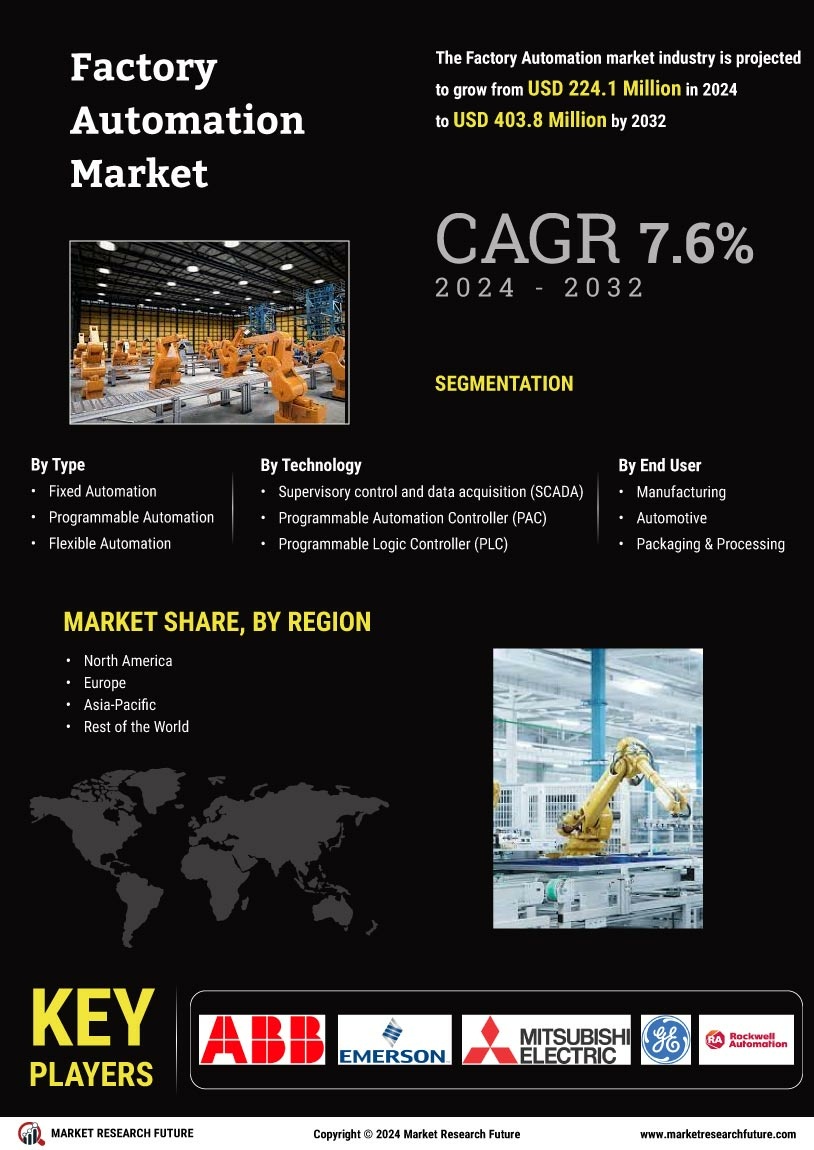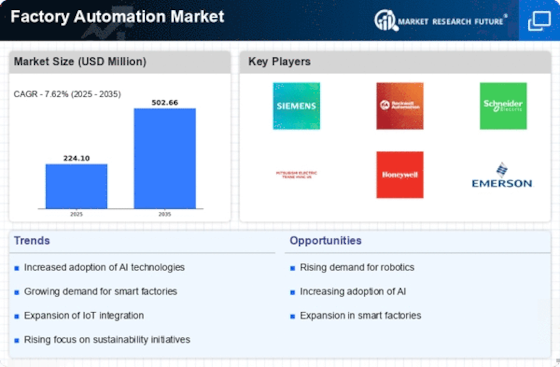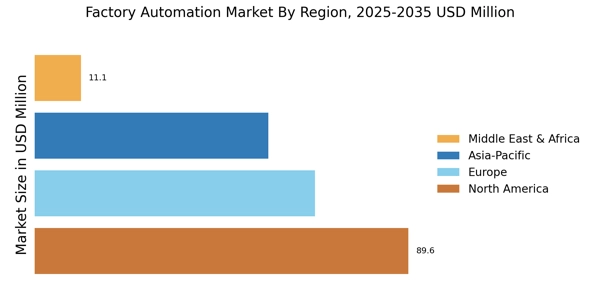Rising Labor Costs
The Factory Automation Market is significantly impacted by the rising labor costs across various sectors. As wages continue to increase, manufacturers are compelled to seek automation solutions to mitigate these expenses. Automation not only reduces the need for manual labor but also enhances production capabilities, allowing companies to maintain profitability despite rising costs. Data shows that automation can lead to a reduction in labor costs by approximately 20 to 30%. This economic pressure is driving the adoption of automated systems within the Factory Automation Market, as businesses strive to balance cost management with operational efficiency.
Growing Focus on Data Analytics
The Factory Automation Market is increasingly influenced by the growing focus on data analytics. Companies are leveraging big data and analytics to gain insights into production processes, enabling them to make informed decisions and optimize operations. The ability to analyze real-time data allows manufacturers to identify inefficiencies and implement corrective measures swiftly. Reports suggest that organizations utilizing data analytics in their operations can improve their overall efficiency by up to 25%. This trend underscores the importance of integrating data-driven strategies within the Factory Automation Market, as businesses seek to harness the power of information to enhance productivity and reduce costs.
Increased Demand for Efficiency
The Factory Automation Market is experiencing a notable surge in demand for enhanced operational efficiency. Companies are increasingly adopting automation technologies to streamline processes, reduce labor costs, and minimize human error. According to recent data, organizations that implement automation can achieve efficiency gains of up to 30%. This trend is driven by the need to remain competitive in a rapidly evolving marketplace. As industries strive to optimize production lines, the integration of automated systems becomes essential. The Factory Automation Market is thus positioned to benefit from this growing emphasis on efficiency, as businesses seek to leverage technology to improve productivity and profitability.
Advancements in Robotics Technology
The Factory Automation Market is witnessing significant advancements in robotics technology, which are transforming manufacturing processes. Innovations in robotic systems, such as collaborative robots (cobots) and autonomous mobile robots (AMRs), are enhancing flexibility and productivity on the factory floor. Data indicates that the use of robotics in manufacturing can lead to a 20% increase in output. These advancements allow for more complex tasks to be automated, thereby reducing the reliance on manual labor. As industries increasingly adopt these technologies, the Factory Automation Market is likely to expand, driven by the need for more sophisticated and efficient manufacturing solutions.
Regulatory Compliance and Safety Standards
The Factory Automation Market is also shaped by the increasing emphasis on regulatory compliance and safety standards. As industries face stricter regulations regarding workplace safety and environmental impact, the adoption of automation technologies becomes a viable solution. Automated systems can enhance safety by minimizing human involvement in hazardous tasks and ensuring compliance with safety protocols. Furthermore, data indicates that companies investing in automation to meet regulatory standards can experience a reduction in workplace accidents by up to 40%. This trend highlights the critical role of automation in the Factory Automation Market, as businesses prioritize safety and compliance in their operational strategies.
















